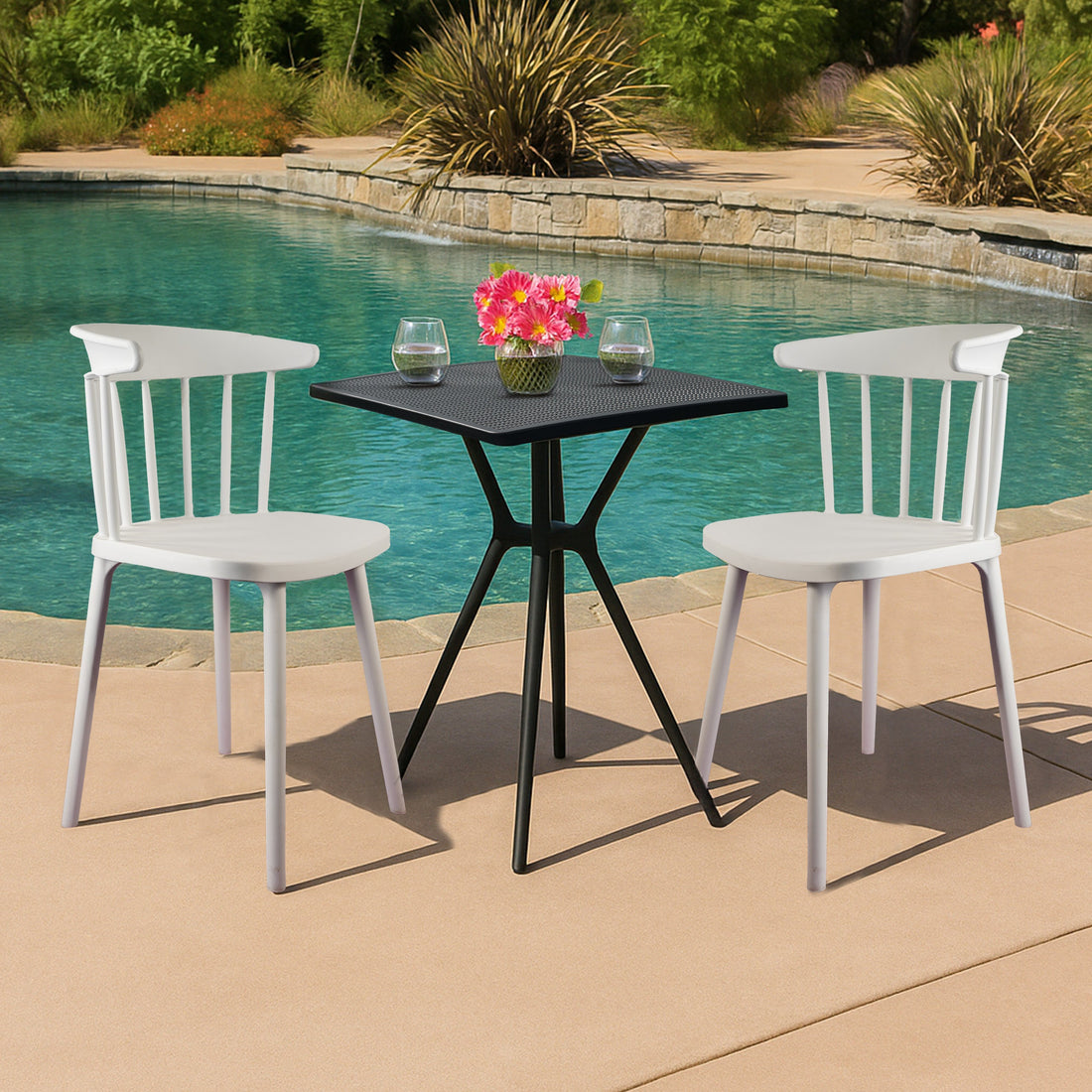
Sustainable Seating: What Café Owners Should Know About Plastic Furniture
Share
In the cafe culture of today, chairs are not just a spot for guests to sit down—it's your extension of your brand, your values, and, more and more, a sign of your dedication to being green. With more consumers embracing eco-consciousness, cafe owners are looking for furniture that provide style, comfort, endurance, and environmental consciousness all simultaneously. Plastic furniture has surprisingly been coming up to be the option in this equation.
Why Plastic Furniture Is Worth a Second Glance

Plastic tends to have a negative reputation for not being environmentally conscious. However, with the evolution of manufacturing processes and the application of recycled materials, perceptions are shifting. Superior plastic chairs and tables are now built to last a long time and thus need to be replaced less often. Such long-term use directly leads to sustainability—less waste and a smaller carbon footprint through fewer replacements.
Furthermore, many producers are adopting recycled plastic manufacture, converting trash into stylish usable furniture. Not only does This approach diverts material away from landfills, but it minimizes the need for virgin resources.
Durability Meets Design
Cafés face constant wear and tear from heavy foot traffic, beverage spills, and the occasional mishap Plastic furniture is noted for its ability to withstand all these in a bustling environment. It does not rust like metal, warp like wood, or even expensive upkeep. Indoors or outside, it can weather diverse climactic conditions, and it is handy for outdoor dining sections.
From sleek, minimalist chairs to vibrant, colourful stools, plastic furniture provides a wide of designs to match your café’s aesthetic. And unlike some sustainable materials that can limit creativity, plastic can be shaped into unique shapes, giving you freedom in branding your space.
Easy Maintenance Saves Time and Resources
Sustainability isn't only about what the furniture is constructed of it's about how much energy and resources are put into maintaining it. Plastic tables and chairs are simple to clean, requiring a quick wipe-down with mild soap and water. This simplicity of maintenance translates to less use of harsh chemicals and less waste of water when compared to other types of furniture that need polishing, staining, or sealing.

Cost-Effective Sustainability
For café business owners, the The The element is equally crucial to be the environmental element. . Plastic furniture costs less upfront compared to pricier wood or metal alternatives. Combined with its durability and little cost of maintenance, it is an inexpensive option that is in accordance with green business strategies.
Spending money on good-quality plastic furniture can earn your budget freedom for other environmentally friendly projects—like the purchase of locally sourced, organic produce or the adoption of biodegradable receptacles for takeout.
Things to Consider When Selecting Plastic Furniture
Material Source – Consider furniture produced from recycled plastic or recyclable plastic so your decision aids a circular economy.
Quality over Quantity – Select plastic furniture for commercial use that is made for heavy-duty applications, warranting it to last for years.

Design Harmony – Ensure that the style suits your café's brand, contemporary chic, rustic, or playful and colourful.
Manufacturer's Reputation – Join hands with well-known brands that have a reputation for environmentally sustainable production processes.
The Bigger Picture
Although no material is completely impact-free, plastic furniture—when selected with care—can be included in a café's sustainability plan. Investing in long-lasting, recyclable, and low-maintenance seating not only decreases environmental impact, but additionally, it draws an increasingly large in question about the environment.
In a competitive marketplace, the appropriate furnishings does more than speak volumes. It says to your customers that you care—not only about their comfort level, but about the health of the earth. And in the café industry, that's a worth sitting for.
